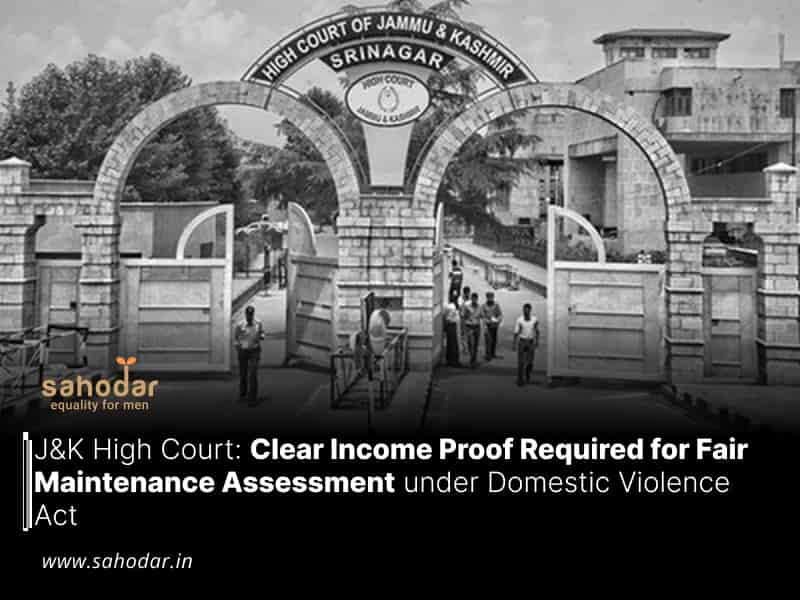The High Court in Jammu and Kashmir and Ladakh has noted the importance of providing solid evidence regarding the husband’s salary to the trial court. This evidence is essential for the court to determine a specific amount of maintenance payable by the husband under the Domestic Violence Act. Justice Puneet Gupta stressed the necessity of presenting concrete proof of the husband’s income before quantifying the maintenance amount.
“The court cannot pass in air the direction that the wife shall be entitled to 25% of the gross salary without knowing the actual salary of the husband. The trial court is required to have the income of the husband of the applicant-wife and then pass the order of maintenance as deemed fit in the light of the salary or other income of the husband”.
The petitioner, who is the wife of respondent No. 01, requested the annulment of the order issued by the 1st Additional Sessions Judge in Baramulla. The trial court had instructed the respondent to provide monthly interim financial support, lump sum compensation, and accommodation to the petitioner. Some of these directives were altered by the appellate court, prompting the filing of the current petition.
The petitioner contended that the appellate court overlooked the provisions of the Domestic Violence Act and departed from Supreme Court precedents. Specifically, the orders related to accommodation and interim compensation were contested, with particular emphasis on the adjustment made to the maintenance granted as a percentage of the husband’s salary.
The respondents countered, expressing their willingness to offer rental accommodation and disputing the rationale behind the granted compensation. They supported the appellate court’s decision to revoke interim compensation, underscoring the absence of evidence at this stage.
Examining the nuances of the case, with a specific focus on the alteration of maintenance and accommodation directives, Justice Gupta underscored the importance of having tangible evidence regarding the husband’s salary before determining the maintenance amount.
The bench noted,
“There is nothing on record to substantiate the salary which is being earned on monthly basis by the respondent-husband. It is only after the salary amount is made known to the court that it can pass a direction for specific amount which is payable by the respondent-husband”.
Concerning joint accommodation, the bench affirmed the appellate court’s ruling, instructing the husband to furnish suitable and secure lodging or cover the expenses for accommodation arranged by the wife.
Regarding compensation, Justice Gupta maintained that the trial court’s award of Rs. 5.00 lakhs lacked justification and could not be upheld. The court emphasized that the Domestic Violence Act is not designed to offer windfalls but demands evidence to justify compensation grants.
“The Act has undoubtedly been formulated to offer prompt relief to the distressed party, entitled to interim relief as deemed fit by the court based on the specific circumstances of the case. Nevertheless, this doesn’t imply an automatic entitlement for the petitioner to receive excessive benefits in the proceedings, such as maintenance or compensation, without the application of judicial discretion,” noted Justice Gupta.
Consequently, the petition was concluded in the aforementioned terms.

